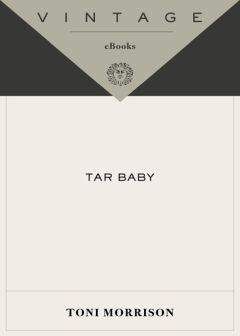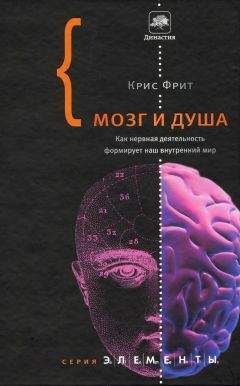Toni Morrison - Song of Solomon
“You can prove this, I guess. Scientifically?”
“No.”
“Shouldn’t you be able to prove it before you act on something like that?”
“Did they prove anything scientifically about us before they killed us? No. They killed us first and then tried to get some scientific proof about why we should die.”
“Wait a minute, Guitar. If they are as bad, as unnatural, as you say, why do you want to be like them? Don’t you want to be better than they are?”
“I am better.”
“But now you’re doing what the worst of them do.”
“Yes, but I am reasonable.”
“Reasonable? How?”
“I am not, one, having fun; two, trying to gain power or public attention or money or land; three, angry at anybody.”
“You’re not angry? You must be!”
“Not at all. I hate doing it. I’m afraid to do it. It’s hard to do it when you aren’t angry or drunk or doped up or don’t have a personal grudge against the person.”
“I can’t see how it helps. I can’t see how it helps anybody.”
“I told you. Numbers. Balance. Ratio. And the earth, the land.”
“I’m not understanding you.”
“The earth is soggy with black people’s blood. And before us Indian blood. Nothing can cure them, and if it keeps on there won’t be any of us left and there won’t be any land for those who are left. So the numbers have to remain static.”
“But there are more of them than us.”
“Only in the West. But still the ratio can’t widen in their favor.”
“But you should want everybody to know that the society exists. Then maybe that would help stop it. What’s the secrecy for?”
“To keep from getting caught.”
“Can’t you even let other Negroes know about it? I mean to give us hope?”
“No.”
“Why not?”
“Betrayal. The possibility of betrayal.”
“Well, let them know. Let white people know. Like the Mafia or the Klan; frighten them into behaving.”
“You’re talking foolishness. How can you let one group know and not the other? Besides, we are not like them. The Mafia is unnatural. So is the Klan. One kills for money, the other kills for fun. And they have huge profits and protection at their disposal. We don’t. But it’s not about other people knowing. We don’t even tell the victims. We just whisper to him, ‘Your Day has come.’ The beauty of what we do is its secrecy, its smallness. The fact that nobody needs the unnatural satisfaction of talking about it. Telling about it. We don’t discuss it among ourselves, the details. We just get an assignment. If the Negro was killed on a Wednesday, the Wednesday man takes it; if he was killed on Monday, the Monday man takes that one. And we just notify one another when it’s completed, not how or who. And if it ever gets to be too much, like it was for Robert Smith, we do that rather than crack and tell somebody. Like Porter. It was getting him down. They thought somebody would have to take over his day. He just needed a rest and he’s okay now.”
Milkman stared at his friend and then let the spasm he had been holding back run through him. “I can’t buy it, Guitar.”
“I know that.”
“There’s too much wrong with it.”
“Tell me.”
“Well, for one thing, you’ll get caught eventually.”
“Maybe. But if I’m caught I’ll just die earlier than I’m supposed to—not better than I’m supposed to. And how I die or when doesn’t interest me. What I die for does. It’s the same as what I live for. Besides, if I’m caught they’ll accuse me and kill me for one crime, maybe two, never for all. And there are still six other days in the week. We’ve been around for a long long time. And believe me, we’ll be around for a long long time to come.”
“You can’t marry.”
“No.”
“Have children.”
“No.”
“What kind of life is that?”
“Very satisfying.”
“There’s no love in it.”
“No love? No love? Didn’t you hear me? What I’m doing ain’t about hating white people. It’s about loving us. About loving you. My whole life is love.”
“Man, you’re confused.”
“Am I? When those concentration camp Jews hunt down Nazis, are they hating Nazis or loving dead Jews?”
“It’s not the same thing.”
“Only because they have money and publicity.”
“No; because they turn them over to the courts. You kill and you don’t kill the killers. You kill innocent people.”
“I told you there are no—”
“And you don’t correct a thing by—”
“We poor people, Milkman. I work at an auto plant. The rest of us barely eke out a living. Where’s the money, the state, the country to finance our justice? You say Jews try their catches in a court. Do we have a court? Is there one courthouse in one city in the country where a jury would convict them? There are places right now where a Negro still can’t testify against a white man. Where the judge, the jury, the court, are legally bound to ignore anything a Negro has to say. What that means is that a black man is a victim of a crime only when a white man says he is. Only then. If there was anything like or near justice or courts when a cracker kills a Negro, there wouldn’t have to be no Seven Days. But there ain’t; so we are. And we do it without money, without support, without costumes, without newspapers, without senators, without lobbyists, and without illusions!”
“You sound like that red-headed Negro named X. Why don’t you join him and call yourself Guitar X?”
“X, Bains—what difference does it make? I don’t give a damn about names.”
“You miss his point. His point is to let white people know you don’t accept your slave name.”
“I don’t give a shit what white people know or even think. Besides, I do accept it. It’s part of who I am. Guitar is my name. Bains is the slave master’s name. And I’m all of that. Slave names don’t bother me; but slave status does.”
“And knocking off white folks changes your slave status?”
“Believe it.”
“Does it do anything for my slave status?”
Guitar smiled. “Well, doesn’t it?”
“Hell, no.” Milkman frowned. “Am I going to live any longer because you all read the newspaper and then ambush some poor old white man?”
“It’s not about you living longer. It’s about how you live and why. It’s about whether your children can make other children. It’s about trying to make a world where one day white people will think before they lynch.”
“Guitar, none of that shit is going to change how I live or how any other Negro lives. What you’re doing is crazy. And something else: it’s a habit. If you do it enough, you can do it to anybody. You know what I mean? A torpedo is a torpedo, I don’t care what his reasons. You can off anybody you don’t like. You can off me.”
“We don’t off Negroes.”
“You hear what you said? Negroes. Not Milkman. Not ‘No, I can’t touch you, Milkman,’ but ‘We don’t off Negroes.’ Shit, man, suppose you all change your parliamentary rules?”
“The Days are the Days. It’s been that way a long time.”
Milkman thought about that. “Any other young dudes in it? Are all the others older? You the only young one?”
“Why?”
“Cause young dudes are subject to change the rules.”
“You worried about yourself, Milkman?” Guitar looked amused.
“No. Not really.” Milkman put his cigarette out and reached for another one. “Tell me, what’s your day?”
“Sunday. I’m the Sunday man.”
Milkman rubbed the ankle of his short leg. “I’m scared for you, man.”
“That’s funny. I’m scared for you too.”
Chapter 7
Truly landlocked people know they are. Know the occasional Bitter Creek or Powder River that runs through Wyoming; that the large tidy Salt Lake of Utah is all they have of the sea and that they must content themselves with bank, shore, and beach because they cannot claim a coast. And having none, seldom dream of flight. But the people living in the Great Lakes region are confused by their place on the country’s edge—an edge that is border but not coast. They seem to be able to live a long time believing, as coastal people do, that they are at the frontier where final exit and total escape are the only journeys left. But those five Great Lakes which the St. Lawrence feeds with memories of the sea are themselves landlocked, in spite of the wandering river that connects them to the Atlantic. Once the people of the lake region discover this, the longing to leave becomes acute, and a break from the area, therefore, is necessarily dream-bitten, but necessary nonetheless. It might be an appetite for other streets, other slants of light. Or a yearning to be surrounded by strangers. It may even be a wish to hear the solid click of a door closing behind their backs.
For Milkman it was the door click. He wanted to feel the heavy white door on Not Doctor Street close behind him and know that he might be hearing the catch settle into its groove for the last time.
“You’ll own it all. All of it. You’ll be free. Money is freedom, Macon. The only real freedom there is.”
“I know, Daddy, I know. But I have to get away just the same. I’m not leaving the country; I just want to be on my own. Get a job on my own, live on my own. You did it at sixteen. Guitar at seventeen. Everybody. I’m still living at home, working for you—not because I sweated for the job, but because I’m your son. I’m over thirty years old.”
“I need you here, Macon. If you were going to go, you should have gone five years ago. Now I’ve come to depend on you.” It was difficult for him to beg, but he came as close to it as he could.
“Just a year. One year. Stake me for a year and let me go. When I come back, I’ll work a year for nothing and pay you back.”
“It’s not the money. It’s you being here, taking care of this. Taking care of all I’m going to leave you. Getting to know it, know how to handle it.”
“Let me use some of it now, when I need it. Don’t do like Pilate, put it in a green sack and hang it from the wall so nobody can get it. Don’t make me wait until—”
“What did you say?” As suddenly as an old dog drops a shoe when he smells raw meat, Macon Dead dropped his pleading look and flared his nostrils with some new interest.
“I said give me a little bit—”
“No. Not that. About Pilate and a sack.”
“Yeah. Her sack. You’ve seen it, haven’t you? That green sack she got hanging from the ceiling? She calls it her inheritance. You can’t get from one side of the room to the other without cracking your head on it. Don’t you remember it?”
Macon was blinking rapidly, but he managed to calm himself and say, “I’ve never set foot in Pilate’s house in my life. I looked in there once, but it was dark and I didn’t see anything hanging down from the ceiling. When’s the last time you saw it?”
“Maybe nine or ten months ago. What about it?”
“You think it’s still there?”
“Why wouldn’t it be?”
“You say it’s green. You know for sure it’s green?”
“Yeah, green. Grass green. What is it? What’s bothering you?”
“She told you it was her inheritance, huh?” Macon was smiling, but so craftily that Milkman could hardly recognize it as a smile.
“No. She didn’t; Hagar did. I was walking across the room toward the…uh…toward the other side and I’m tall enough for it to be in my way. I bumped my head on it. Made a hickey too. When I asked Hagar what it was she said, ‘Pilate’s inheritance.’”
“And it made a hickey on your head?”
“Yeah. Felt like bricks. What’re you going to do, sue her?”
“You had any lunch?”
“It’s ten-thirty, Daddy.”
“Go to Mary’s. Get us a couple of orders of barbecue. Meet me in the park across from Mercy. We’ll eat lunch there.”
“Daddy…”
“Go on now. Do what I say. Go on, Macon.”
They met in the little public park across the street from Mercy Hospital. It was full of pigeons, students, drunks, dogs, squirrels, children, trees, and secretaries. The two colored men sat down on an iron bench a little away from the most crowded part, but not the edge. They were very well dressed, too well dressed to be eating pork out of a box, but on that warm September day it seemed natural, a perfect addition to the mellowness that pervaded the park.
Milkman was curious about his father’s agitation, but not alarmed. So much had been going on, so many changes. Besides, he knew whatever was making his father fidget and look around to see if anyone was too near had to do with something his father wanted, not something he wanted himself. He could look at his father coolly now that he had sat on that train and listened to his mother’s sad sad song. Her words still danced around in his head. “What harm did I do you on my knees?”
Deep down in that pocket where his heart hid, he felt used. Somehow everybody was using him for something or as something. Working out some scheme of their own on him, making him the subject of their dreams of wealth, or love, or martyrdom. Everything they did seemed to be about him, yet nothing he wanted was part of it. Once before he had had a long talk with his father, and it ended up with his being driven further from his mother. Now he had had a confidential talk with his mother, only to discover that before he was born, before the first nerve end had formed in his mother’s womb, he was the subject of great controversy and strife. And now the one woman who claimed to love him more than life, more than her life, actually loved him more than his life, for she had spent half a year trying to relieve him of it. And Guitar. The one sane and constant person he knew had flipped, had ripped open and was spilling blood and foolishness instead of conversation. He was a fit companion for Empire State. So now he waited with curiosity, but without excitement or hope, for this latest claim.
“Listen to me. Just eat your meat and listen to me. Don’t interrupt, because I might lose my train of thought.
“A long time ago, I told you about when I was a boy on the farm. About Pilate and me. About my father getting killed. I never finished the story; I never told you all of it. The part I left out was about me and Pilate. I tried to keep you away from her and said she was a snake. Now I’m going to tell you why.”
A red ball rolled to his feet, and Macon picked it up and threw it back to a little girl. He made sure she was safely back in her mother’s view before he began his story.
Six days after the first Macon Dead died, his children, a twelve-year-old Pilate and a sixteen-year-old Macon Dead, found themselves homeless. Bewildered and grieving, they went to the house of the closest colored person they knew: Circe, the midwife who had delivered them both and who was there when their mother died and when Pilate was named. She worked in a large house—a mansion—outside Danville, for a family of what was then called gentlemen farmers. The orphans called to Circe from the vegetable garden early in the morning as soon as they saw the smoke from the cook stove rising. Circe let them in, pressing her hands together with relief, and saying how glad she was to see them alive. She hadn’t known what had happened to them after the killing. Macon explained that he had buried his father himself, down by that part of the stream on Lincoln’s Heaven where they used to fish together, the place where he had caught that nine-pound trout. The grave was shallower than it ought to be, but he’d piled rocks there.



